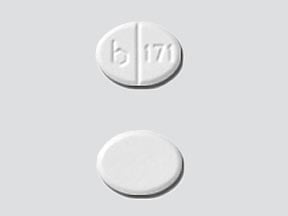
Mefloquine Coupons & Savings Card – Discount Prices from $32.83
My prescription
Edit
250MG, Mefloquine (10 Tablets)
Select pharmacy

CVS
$38.93
COUPON PRICE
Walgreens
$32.83
COUPON PRICE
Albertsons
$49.05
COUPON PRICE
Walmart
$50.18
COUPON PRICEMefloquine savings card
Show this card to your pharmacist
Walgreens
$32.83
BIN
ID
PCN
GRP
015995
LHKPR994727
GDC
DR33
Powered by
Mefloquine dosage forms
Dosage Quantity Price from Per unit 250MG 10 Tablets $38.93 $3.89 250MG 1 Tablet $6.75 $6.75 250MG 8 Tablets $34.80 $4.35 250MG 25 Tablets $77.88 $3.12
| Dosage | Quantity | Price from | Per unit |
|---|---|---|---|
| 250MG | 10 Tablets | $38.93 | $3.89 |
| 250MG | 1 Tablet | $6.75 | $6.75 |
| 250MG | 8 Tablets | $34.80 | $4.35 |
| 250MG | 25 Tablets | $77.88 | $3.12 |
Mefloquine Warnings
Mefloquine is associated with a range of significant safety concerns. It is crucial to understand these risks and take appropriate precautions. If you have any questions or experience unusual symptoms, reach out to your healthcare provider.
Mental Health Concerns: Mefloquine can lead to changes in mood and behavior, such as anxiety, depression, paranoia, hallucinations, and suicidal thoughts or attempts. These issues could persist even after stopping the medication. Mefloquine should not be used by individuals with a history of mental health disorders like depression, schizophrenia, or psychosis. If you experience any unusual mood changes or behaviors, consult your healthcare provider immediately.
Cardiac Risks: There is a risk of QT prolongation, a condition that affects the heart's rhythm. Avoid using mefloquine with medications such as halofantrine, ketoconazole, quinine, or quinidine, as these can exacerbate heart issues. Inform your healthcare provider of all medications you are currently taking prior to starting mefloquine.
Neurological Effects: Mefloquine can cause symptoms such as dizziness, lightheadedness, ringing in the ears, and loss of balance, potentially affecting your ability to drive or operate machinery. If these symptoms occur, contact your healthcare provider.
Seizure Risk: The risk of seizures may increase when using mefloquine, especially if taken with other antimalarial drugs like quinine or chloroquine. It is not recommended for individuals with a history of seizures. Discuss your medical history with your healthcare provider before starting mefloquine.
Eye and Nerve Health: Some users have reported eye problems, including nerve-related issues. If you notice any changes in your vision, seek advice from a healthcare provider or optometrist.
Contraindications: Do not use mefloquine if you have or have had:
- Depression or major psychiatric conditions
- Anxiety problems or psychotic disorders like schizophrenia
- A history of seizures or convulsions
In the event of an overdose or severe reaction, seek emergency medical attention immediately. Always provide your healthcare professionals with a complete list of your current medications and medical history to ensure safe use of mefloquine.
Mefloquine Side Effects
Common side effects:
- dizziness
- muscle pain
- stomach pain
- nausea
- headache
- vomiting
- diarrhea
- skin rash
- fever
- chills
- tiredness
- loss of appetite
- ringing sound in the ears (tinnitus)
Serious side effects:
- sudden drop in blood pressure
- changes or slowing of your heartbeat
- seizures
- severe allergic reactions characterized by rash, itching or swelling (especially of the face, tongue, or throat)
- severe dizziness
- trouble breathing
- emotional or mood changes
- unusual tiredness
- symptoms indicative of liver issues such as persistent nausea, vomiting, dark urine, or yellowing of the eyes and skin
Mefloquine Interactions
Interactions with high risk of serious adverse effects and should be avoided:
- Aurothioglucose
- Bepridil
- Cisapride
- Dronedarone
- Fluconazole
- Isradipine
- Ketoconazole
- Levomethadyl
- Mesoridazine
- Nelfinavir
- Pimozide
- Piperaquine
- Posaconazole
- Saquinavir
- Sparfloxacin
- Terfenadine
- Thioridazine
- Ziprasidone
Interactions with moderate risk that may require dose adjustment, closer monitoring, or timing changes:
- Acecainide
- Ajmaline
- Alfuzosin
- Amiodarone
- Amisulpride
- Amitriptyline
- Amoxapine
- Anagrelide
- Apomorphine
- Aprindine
- Aripiprazole
- Aripiprazole Lauroxil
- Arsenic Trioxide
- Asenapine
- Astemizole
- Azimilide
- Azithromycin
- Bretylium
- Buprenorphine
- Buserelin
- Carbamazepine
- Ceritinib
- Chloral Hydrate
- Chloroquine
- Chlorpromazine
- Ciprofloxacin
- Citalopram
- Clarithromycin
- Clofazimine
- Clomipramine
- Clozapine
- Crizotinib
- Dabrafenib
- Dasatinib
- Degarelix
- Delamanid
- Desipramine
- Deslorelin
- Deutetrabenazine
- Disopyramide
- Dofetilide
- Dolasetron
- Domperidone
- Donepezil
- Droperidol
- Efavirenz
- Encorafenib
- Enflurane
- Entrectinib
- Erythromycin
- Escitalopram
- Fingolimod
- Flecainide
- Fluoxetine
- Formoterol
- Foscarnet
- Fostemsavir
- Gatifloxacin
- Gemifloxacin
- Glasdegib
- Gonadorelin
- Goserelin
- Granisetron
- Halofantrine
- Haloperidol
- Halothane
- Histrelin
- Hydroquinidine
- Hydroxychloroquine
- Hydroxyzine
- Ibutilide
- Iloperidone
- Imipramine
- Inotuzumab Ozogamicin
- Isoflurane
- Ivabradine
- Ivosidenib
- Lapatinib
- Lefamulin
- Lenvatinib
- Levofloxacin
- Lidoflazine
- Lofexidine
- Lopinavir
- Lorcainide
- Macimorelin
- Methadone
- Metronidazole
- Mifepristone
- Mirtazapine
- Moxifloxacin
- Nafarelin
- Nilotinib
- Norfloxacin
- Nortriptyline
- Octreotide
- Ofloxacin
- Ondansetron
- Osilodrostat
- Osimertinib
- Oxaliplatin
- Ozanimod
- Paliperidone
- Panobinostat
- Pasireotide
- Pazopanib
- Pentamidine
- Pimavanserin
- Pirmenol
- Pitolisant
- Ponesimod
- Prajmaline
- Probucol
- Procainamide
- Prochlorperazine
- Promethazine
- Propafenone
- Propranolol
- Protriptyline
- Quetiapine
- Quinidine
- Quinine
- Ranolazine
- Ribociclib
- Risperidone
- Selpercatinib
- Sematilide
- Sertindole
- Sertraline
- Sevoflurane
- Siponimod
- Sodium Phosphate
- Sodium Phosphate, Dibasic
- Sodium Phosphate, Monobasic
- Solifenacin
- Sorafenib
- Sotalol
- Spiramycin
- Sulfamethoxazole
- Sulpiride
- Sultopride
- Sunitinib
- Tacrolimus
- Tedisamil
- Telavancin
- Telithromycin
- Tetrabenazine
- Toremifene
- Trazodone
- Triclabendazole
- Trifluoperazine
- Trimethoprim
- Trimipramine
- Triptorelin
- Vandetanib
- Vardenafil
- Vemurafenib
- Vinflunine
- Voclosporin
- Voriconazole
- Zolmitriptan
- Zotepine
- Zuclopenthixol
Interactions with low risk that usually do not require a change in therapy:
- Lumefantrine
- Rifampin
- Valproic Acid
